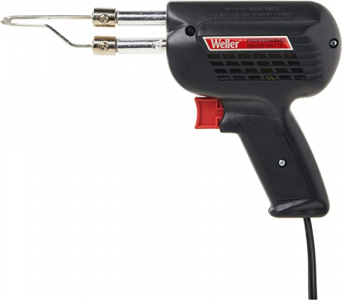- Joined
- Feb 2, 2013
- Messages
- 3,629
You can create a small well to melt or hold molten solder to dip the conductors into
I used to replace hundreds of forklift battery cables. I’d take copper end lugs, fill them with solder, heat the lug with a propane torch until the solder melts, then slowly plunge the cable into the lug. Heat again until the solder flows into the cable Within seconds the solder connections were solid.
It works great up to 1/0 cable in my experience
I used to replace hundreds of forklift battery cables. I’d take copper end lugs, fill them with solder, heat the lug with a propane torch until the solder melts, then slowly plunge the cable into the lug. Heat again until the solder flows into the cable Within seconds the solder connections were solid.
It works great up to 1/0 cable in my experience
Last edited:


